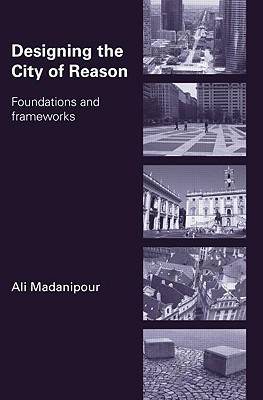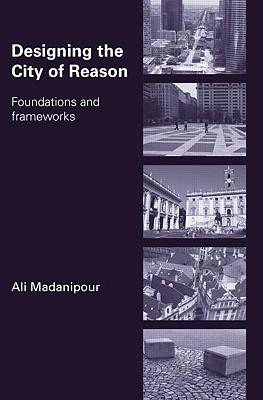
- Afhalen na 1 uur in een winkel met voorraad
- Gratis thuislevering in België vanaf € 30
- Ruim aanbod met 7 miljoen producten
- Afhalen na 1 uur in een winkel met voorraad
- Gratis thuislevering in België vanaf € 30
- Ruim aanbod met 7 miljoen producten
Omschrijving
With a practical approach to theory, Designing the City of Reason offers new perspectives on how differing belief systems and philosophical approaches impact on city design and development, exploring how this has changed before, during and after the impact of modernism in all its rationalism.
Looking at the connections between abstract ideas and material realities, this book provides a social and historical account of ideas which have emerged out of the particular concerns and cultural contexts and which inform the ways we live. By considering the changing foundations for belief and action, and their impact on urban form, it follows the history and development of city design in close conjunction with the growth of rationalist philosophy. Building on these foundations, it goes on to focus on the implications of this for urban development, exploring how public infrastructures of meaning are constructed and articulated through the dimensions of time, space, meaning, value and action.
With its wide-ranging subject matter and distinctive blend of theory and practice, this book furthers the scope and range of urban design by asking new questions about the cities we live in and the values and symbols which we assign to them.
Specificaties
Betrokkenen
- Auteur(s):
- Uitgeverij:
Inhoud
- Aantal bladzijden:
- 352
- Taal:
- Engels
Eigenschappen
- Productcode (EAN):
- 9780415420921
- Verschijningsdatum:
- 1/06/2007
- Uitvoering:
- Paperback
- Formaat:
- Trade paperback (VS)
- Afmetingen:
- 164 mm x 232 mm
- Gewicht:
- 589 g

Alleen bij Standaard Boekhandel
Beoordelingen
We publiceren alleen reviews die voldoen aan de voorwaarden voor reviews. Bekijk onze voorwaarden voor reviews.











